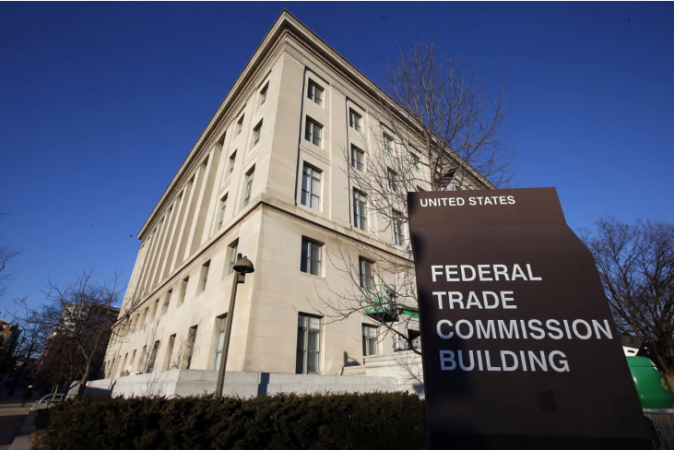
United States: The "smart" device in your home, the fitness tracker on your wrist, or the most recent kids craze in online videos has gone viral—all of which create a wealth of personal data for big tech companies.
There is growing public concern about how that data is being used and protected, and officials are outraged. Federal regulators are currently considering creating regulations for what they see as harmful commercial surveillance and loose data protection.
The Federal Trade Commission announced the initiative Thursday and is seeking feedback from the public on the impacts of data collection by businesses and the potential benefits of the new privacy protection laws.
Commercial surveillance is described by the FTC as "the business of collecting, analyzing and profiting from information about people".
A national data privacy law has never been close to being passed in Congress, thanks to a bipartisan critique of the data power of Meta, Facebook and Instagram's parent company, Google and other tech giants that have censored consumer data used by online advertisers. Compiled and made fortune.
Concern among parents about how social media affects children has grown nationwide. When Frances Haugen, a former data scientist for Facebook, revealed internal company research that apparently showed serious harm to some teens from Instagram, she stunned Congress and the public.
Following those revelations, the senators asked executives from YouTube, TikTok and Snapchat what they were doing to ensure the safety of young users in light of teen suicides and other pitfalls associated with parental use of the platform.
As concerns mount, social media platforms such as Instagram, Snapchat and TikTok are all introducing new features that they claim will make their services safer and more suitable for younger users. However, algorithms that push content endlessly and nobody - just teenagers - can lead teens down a dangerous rabbit hole are rarely addressed by changes.
Democratic FTC members said Thursday that a new law should be passed immediately by Congress, but the agency was acting tentatively by issuing a notice of the proposed rules.
The FTC said that "mass surveillance increases the risk and stakes of data breaches, deceit, manipulation and other abuses."
Agency representatives pointed out that over the past 20 years, the FTC has taken hundreds of enforcement actions against businesses for data security and privacy breaches.
Cases involving the sharing of sensitive TV viewing information for targeted advertising, the collection and sharing of health-related data with third parties, and failure to implement adequate safeguards to protect sensitive data such as social security numbers were among them.
According to officials, however, the FTC's ability to prevent illegal behavior is limited, as it often lacks the authority to seek monetary penalties for initial legal violations. If Congress were to pass comprehensive privacy legislation, that could change.
In an online news conference, FTC Chair Leena Khan said that "companies now collect personal data on individuals at a large scale and in a surprising array of contexts." We aim to begin setting a substantial public record today that will help determine whether the FTC should issue regulations addressing practices related to commercial surveillance and data protection, as well as what those rules might look like. .
"We look forward to hearing from the public," Khan said.
The analysis of data collected by businesses using algorithms and automated systems, as well as the effects of various data practices, are potential topics of interest.
As a law professor often critical of Big Tech, Khan was chosen by President Joe Biden to lead the FTC, an independent body that regulates consumer and competition laws as well as online privacy. .
Five FTC commissioners voted 3-2 to approve the proposed rules. Two Republicans opposed it, while Khan and the other two Democrats voted to release it.
"Family Center," a tool that allows parents to see who messages their teens are sending, but not the content of those messages, received new parental controls from Snapchat on Tuesday. The service requires the consent of both parent and child.
FBI inspected Trump's Mar-a-Lago residence for nuclear documents
US Attorney General says he authorized search of Donald Trump’s home